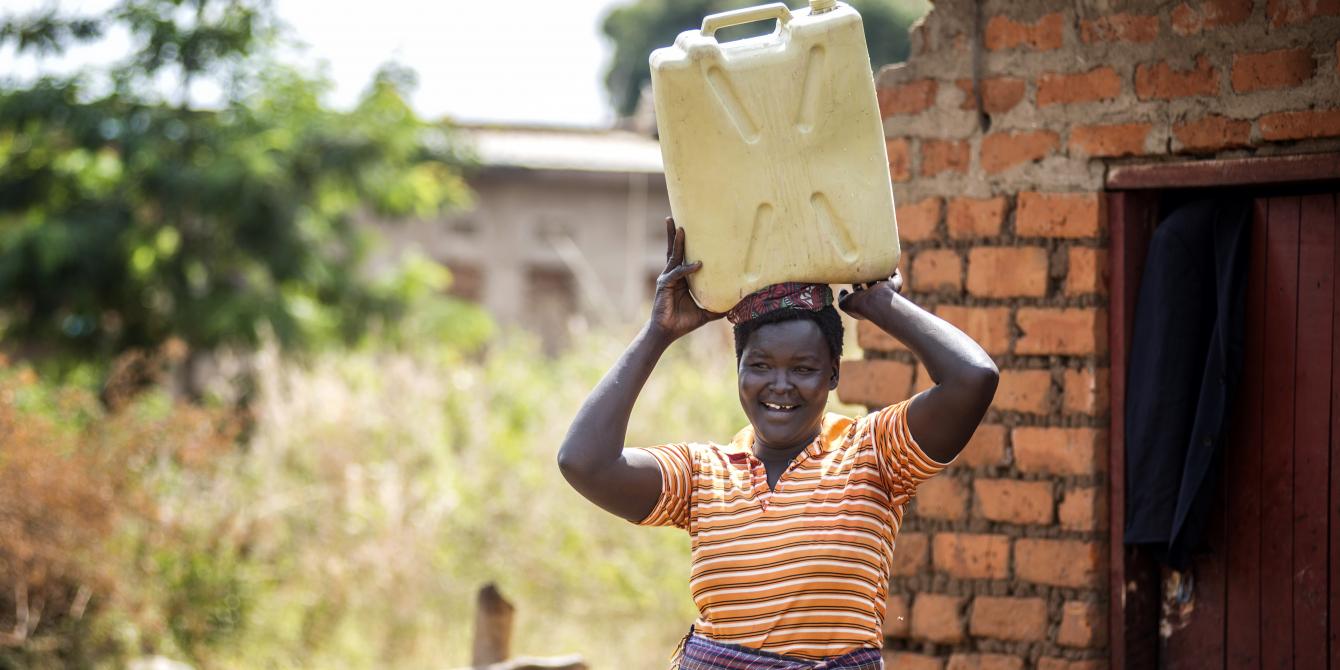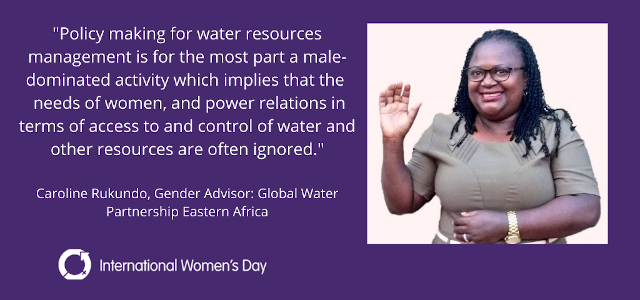
Where Are the Women? The Absence of Women in Policy and Policy Making
Women are the heaviest users of water – especially as end users – yet they are not part of the structures that manage this crucial resource. They are glaringly absent when it comes to decision making and management of water resource initiatives and labour-intensive activities ranging from walking long distances to fetch water to cooking and washing are rarely considered in the planning and management of water resources. Policy making for water resources management is for the most part a male-dominated activity which implies that the strategic gender needs of women, and power relations in terms of access to and control of water and other resources are often ignored.
Changing the Narrative in Eastern Africa and Uganda: The Africa Water Investment Support Programme on Water, Climate, Development, and Gender Transformation (AIP-WACDEP-G)
The AIP WACDEP-G Programme will contribute to addressing some of the challenges women face in the access and control of water resources, in addition to other gender inequalities and social norms that were identified during a recently concluded GWP-commissioned gender analysis study. This is envisaged to be achieved through the promotion of gender transformative approaches, which will be operationalised as specific programs and interventions that create opportunities for individuals to actively challenge gender norms, promote positions of social and political influence for women in communities, and address power inequities between persons of different genders. These gender transformative approaches create an enabling environment for gender transformation by going beyond just including women as participants.
Presently, WACDEP-G will initially target five countries as pilot projects: Benin, Cameroon, Tunisia, Uganda, and Zambia and the lessons learned from these pilots will inform the scale up to implement the program in an additional 13 countries, bringing the total to 18 countries across Africa.
For the Uganda pilot project, and in collaboration with the Ministry of Water and Environment and other key stakeholders, Global Water Partnership Eastern Africa (GWPEA) will address some of the gender inequities and inequalities that exist with in the sector. Various capacity building initiatives will target key stakeholders including women-based organisations and individuals through enhancing their decision-making power/agency for enhanced choices and access to water and climate information and services.
Balancing the Gender Equation: GWPEA’s Gender Advisor on Where Changes Can Be Made

"I hold a deep-seated belief that there is a need for more female engineers and scientists in the water sector and that there should be a deliberate effort by government, learning institutions, and civil society to promote more female water researchers and scientists. The advantage to increasing female participation and engagement in the water sector is that comprehensive research on issues affecting women and girls in the water sector can be conducted and through these findings, a gendered approach to water becomes possible.
I also feel that there is a need to support more female scientists and researchers in attaining post-graduate degrees in water resources management and related fields at both the masters and doctoral levels as a way of effectively managing Uganda's water resources. Let us plant this seed by starting at the grassroots to train young girls to be future water engineers and challenge the current social and cultural stereotypes about women in science."
Photo credit: Oxfam in Uganda